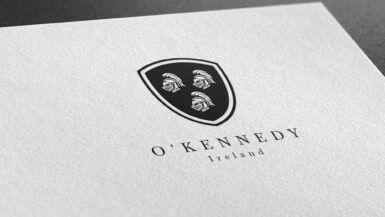The Beattie/Beatty surname, with its various spellings such as Betagh and Beatagh, is rooted in Irish history. Its origin can be traced back to a family of Danish descent, although the early Anglo-Irish records suggest a Norman influence in their Christian names. This unique blend of cultural influences underscores the complexity of Irish surnames, often shaped by the island’s tumultuous history of invasions and settlements.
Etymology and Meaning
The name ‘Beattie’ or ‘Beatty’ is derived from the Irish word ‘Biadhtach,’ which translates to ‘the hospitaller’ or ‘public victualler.’ This suggests that the original bearers of the name were likely involved in providing hospitality or food services, a vital role in medieval society.
Earliest Known Usage
The earliest known usage of the Beattie/Beatty surname is difficult to pinpoint precisely due to the lack of comprehensive medieval records. However, the family’s presence is notably recorded in County Meath from an early period, indicating their establishment in Ireland several centuries ago.
Geographic Distribution
Original Geographic Location
The Beattie/Beatty family was originally seated in Moynalty, County Meath. This area served as their primary base, from where they wielded considerable influence and property.
Migration Patterns
Over time, branches of the Beattie/Beatty family spread to other parts of Ireland, notably to counties Mayo, Galway, and Clare. This migration reflects the broader patterns of land ownership changes and societal shifts in Ireland, particularly around the Cromwellian period.
Historical Context
Notable Historical Events
The Beattie/Beatty family experienced significant upheaval during the Cromwellian times. Francis Betagh, a key family member, was notably stripped of his estates through fraud and perjury, highlighting the turbulent political and social climate of the era.
Involvement in Key Moments in History
While specific details of the family’s involvement in key historical events are sparse, their loss of property during the Cromwellian era suggests a degree of involvement in the conflicts and power struggles of the time.
Notable Irish Bearers of the Surname
Famous Individuals
Over the centuries, various members of the Beattie/Beatty family have gained prominence in different fields, contributing to Irish society and beyond. Their achievements and influence are a testament to the family’s resilience and adaptability.
Influential Figures
Individuals bearing the Beattie/Beatty surname have played significant roles in various aspects of Irish life, from politics to culture, reflecting the family’s long-standing presence and impact in Ireland.
Variations of the Surname
Spelling Variations
The Beattie/Beatty surname has been spelled in multiple ways, including Betagh and Beatagh. These variations are typical of Irish surnames, often resulting from the Anglicization process or regional pronunciation differences.
Regional Differences
The surname’s spelling and pronunciation may vary slightly across different regions of Ireland, reflecting the local dialects and historical influences in those areas.
Current Statistics and Distribution
Frequency and Global Distribution
The Beattie/Beatty surname, while distinctly Irish, is found in various parts of the world due to migration patterns, particularly in countries with significant Irish diasporas.
Changes Over Time
The frequency and distribution of the surname have evolved over time, influenced by historical events such as emigration during the Great Famine and other societal changes.
Family Coat of Arms
The Beattie/Beatty family coat of arms is a symbol of the family’s heritage and values. The blue sword represents strength and loyalty, while the keys symbolize guardianship and trust. The red and yellow hollow diamond shapes add a distinct visual element, possibly denoting wealth and nobility. The family motto, “Lumen coeleste sequamur,” meaning “May we follow heavenly inspiration,” encapsulates the family’s guiding principles and aspirations.






Leave a reply